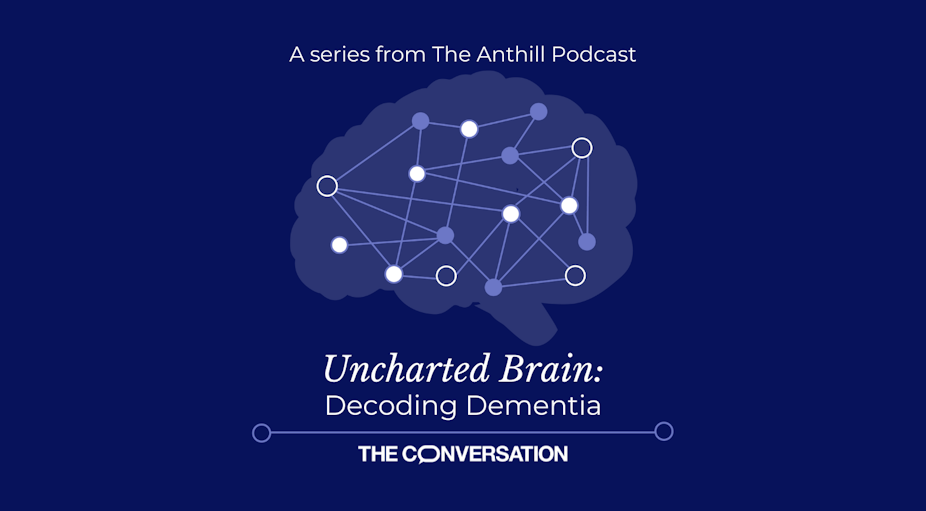Uncharted Brain: Decoding Dementia is a series of podcasts and articles from The Conversation examining new research unlocking clues to the ongoing mystery of how dementia works in the brain. Hosted by Paul Keaveny and Gemma Ware, it was published in November 2022.
Part 1: a lifelong study unlocks clues to Alzheimer’s
In the first episode and article, we explore how a study which began just after the end of the second world war is discovering clues to Alzheimer’s.
Based on a representative sample of 5,362 babies all born in the same week in the UK in 1946, the National Survey of Health and Development began as a one-off investigation of the cost of childbirth and the quality and efficiency of obstetric services. From there it became the longest continuously running study of health over the human life course in the world – also known as the British 1946 birth cohort.
Since 2016, the brains of some of its participants are revealing new insights into the risk factors for Alzheimer’s disease. We find out more from Marcus Richards and Jon Schott, two of the researchers from UCL in the UK behind the study, and David Ward, one of the study participants whose brain is being studied as part of the dementia research.
Part 2: the family trauma of dementia from sports injuries
In the second episode and article, we explore chronic traumatic encephalopathy (CTE), a form of dementia that athletes from a whole range of sports can develop. We hear about the toll it can take on family members, who are often unaware of what’s happening to their loved ones.
CTE is now at the centre of a number of legal challenges involving sports from rugby to American football.
After Lisa McHale’s husband Tom, a former NFL player, died in 2008, she received a request from researchers at Boston University School of Medicine to study his brain for signs of CTE – and was told he had quite a severe case. She says that learning more about the disease has been extremely helpful in processing what happened to her husband.
Today, McHale is director of family relations at the US-based Concussion Legacy Foundation, which works with family members who lost loved ones after they developed CTE. Matt Smith, a sports psychologist at the University of Winchester, recently led a research project interviewing some of these family members about their experiences. We talk to them both in part two of the series.
Read more: Sport-induced traumatic brain injury: families reveal the 'hell' of living with the condition
Part 3: the role viruses may play in Alzheimer’s
There are many competing theories about what causes Alzheimer’s disease. For more than 30 years, Ruth Itzhaki has been accumulating evidence that viruses are involved in its development in the brain. We investigate this evidence in the third and final episode and article.
Itzhaki, a neurobiologist and visiting professorial fellow at the University of Oxford, believes the common cold sore virus (herpes simplex 1 or HSV1) could be playing a vital role in Alzheimer’s. But she has faced years of hostility from many within the scientific community who didn’t take the theory seriously. Now, though, it seems the evidence is building in support of Itzhaki’s theory.
All episodes of the series are available on The Anthill podcast channel. Follow The Anthill now so you don’t miss out.
Uncharted Brain: Decoding Dementia was produced by Tiffany Cassidy with sound design by Eloise Stevens. The executive producer was Gemma Ware.

